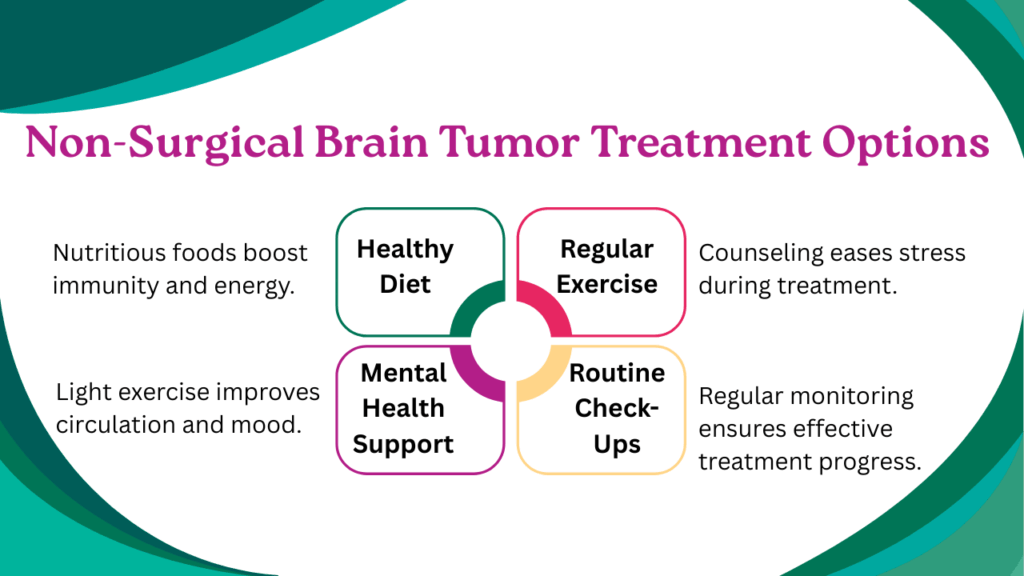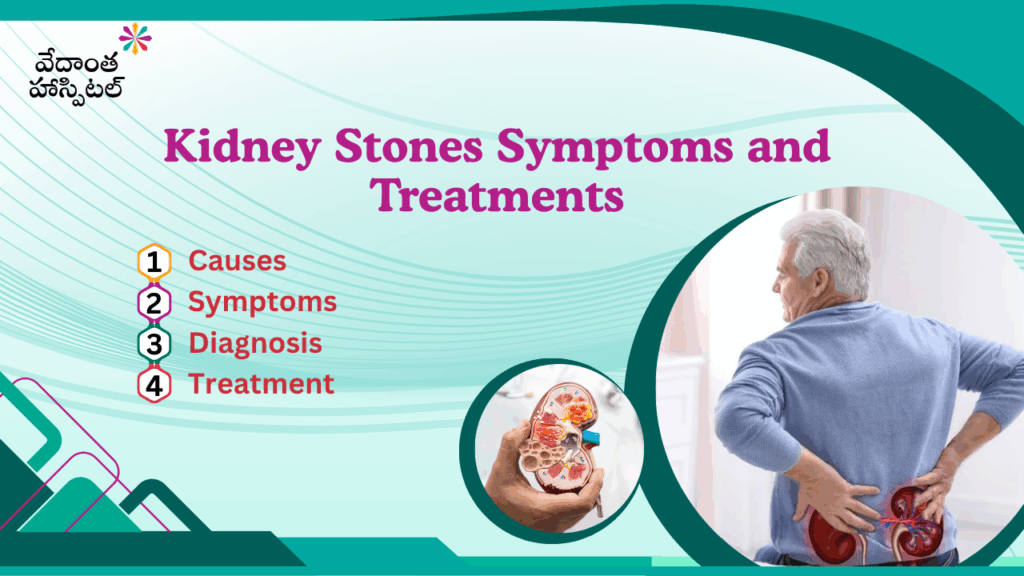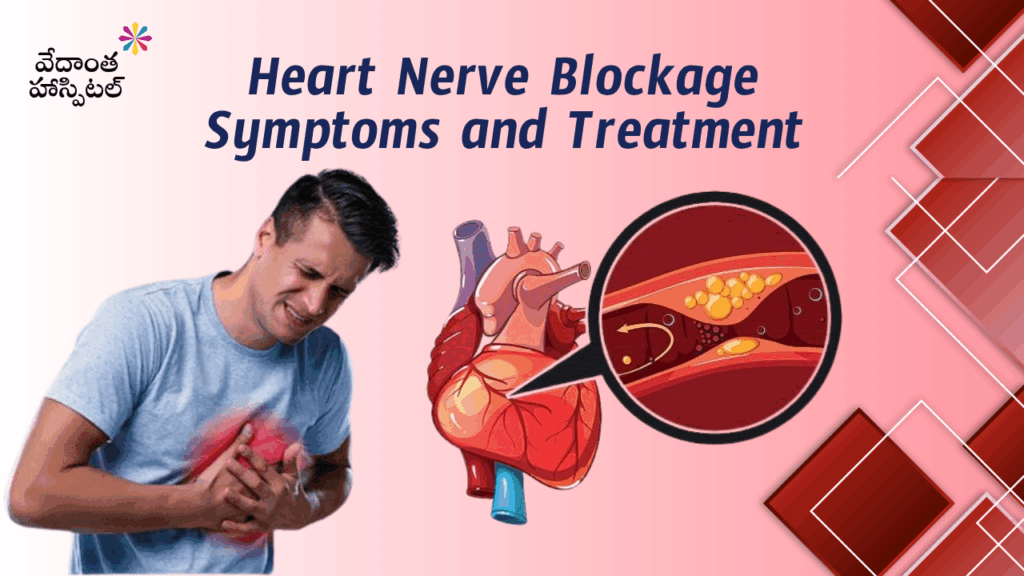Knee Pain and Treatments
- Knee pain is one of the most common health issues people face worldwide, affecting individuals of all ages. Whether it results from aging, injury, or overuse, knee pain can significantly reduce mobility and quality of life.
- Knee pain and treatments have become a major concern for people seeking quick relief and long-term solutions. The good news is that there are multiple treatment options available, from non-surgical treatments for knee pain to advanced surgical procedures.
- At Vedanta Hospitals Kadapa our orthopedic specialists are dedicated to providing effective solutions to knee joint pain, helping patients regain their strength and mobility.
- In this blog, we will explore common knee problems, the causes of knee pain, available treatment options, and much more. Whether you’re dealing with chronic pain or recovering from an injury, this guide will provide you with all the information you need.
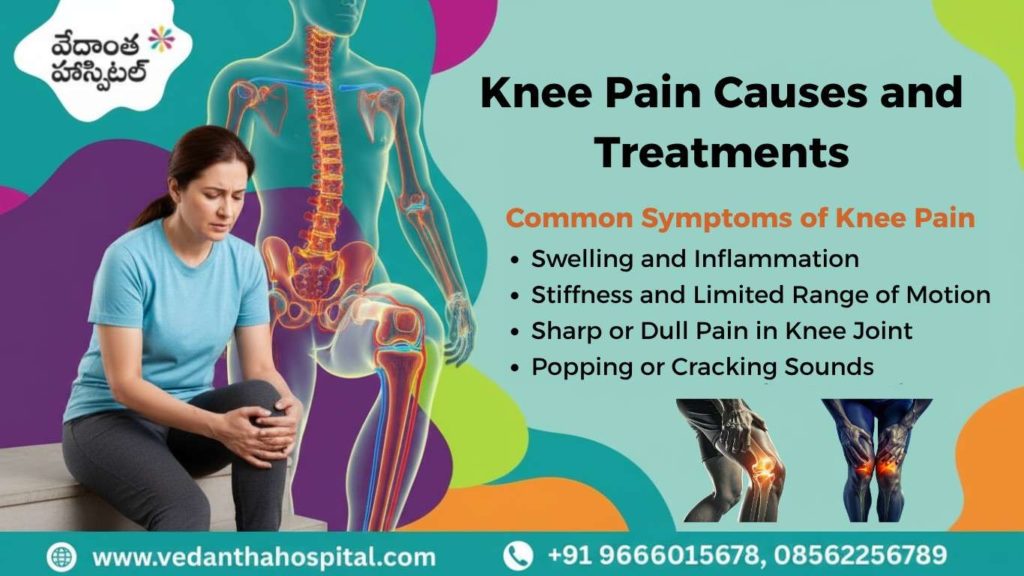
Symptoms of Knee Pain
Understanding the symptoms of knee pain is the first step in addressing the issue. Knee pain can manifest in various ways, and recognizing these signs early can help in treatment for knee pain and swelling. Here are some common symptoms of knee pain:
- Swelling and Tenderness: Swelling around the knee joint is a clear indication of injury or inflammation.
- Pain While Moving: Whether it’s a sharp or dull pain, movement often aggravates knee discomfort, especially when walking or standing for long periods.
- Popping or Cracking Sounds: A popping sound can occur during movement, indicating cartilage or ligament issues.
- Stiffness: Difficulty in bending or straightening the knee is a common symptom of joint problems or arthritis.
- Instability: A feeling that your knee is going to give way or buckle when you try to walk or stand.
Recognizing these symptoms early on allows for quicker diagnosis and appropriate treatment, especially when managing conditions like osteoarthritis knee treatment or knee ligament injury.
Causes of Knee Pain
Knee pain can arise from a variety of causes, including wear and tear, injury, or underlying health conditions. Below are some of the most common causes of knee pain:
- Osteoarthritis: A degenerative joint disease that leads to the breakdown of cartilage in the knee, causing pain and stiffness.
- Knee Ligament Injuries (ACL, PCL): A torn ligament can cause severe pain and instability, often requiring surgical intervention.
- Meniscus Tears: The meniscus is a cartilage that cushions the knee joint. Tears can cause pain, swelling, and limited motion.
- Patellofemoral Pain Syndrome: This condition, also known as “runner’s knee,” causes pain around the kneecap due to overuse or misalignment.
- Bursitis: Inflammation of the bursae, fluid-filled sacs that cushion the knee joint, often caused by repetitive motions.
- Knee Injuries: Direct trauma to the knee, such as falls or sports injuries, can lead to fractures, sprains, or tears.
Each of these conditions requires a specific knee pain treatment plan. Understanding the cause is essential for selecting the most appropriate treatment, whether non-surgical or surgical.
Common Knee Problems
Some knee problems are more common than others and require targeted treatments. Here are a few common knee problems:
- Chronic Knee Pain: Often due to arthritis, this type of pain worsens with activity and is more common in older adults.
- Torn ACL: The anterior cruciate ligament (ACL) is a vital stabilizer of the knee. A torn ACL is common in athletes and requires prompt attention.
- Knee Cartilage Damage: Cartilage helps cushion the knee joint, and damage to it can lead to pain and reduced mobility.
- Knee Swelling: Swelling is a result of injury, arthritis, or infection and can severely limit movement.
These common problems are not only painful but can also cause long-term complications if left untreated. Therefore, knee arthritis treatment or non-surgical knee pain treatments should be considered as early as possible.

Consequences of Untreated Knee Pain
Untreated knee pain can lead to serious complications over time, especially when the underlying issue is left unaddressed. Some consequences of untreated knee pain include:
- Reduced Mobility: Long-term knee pain can lead to decreased movement, making it harder to perform everyday activities.
- Chronic Inflammation: Ongoing inflammation can worsen joint damage, increasing the need for knee replacement surgery.
- Permanent Damage to Joint: Conditions like osteoarthritis can progress and cause permanent damage to the knee joint if not treated early.
- Increased Risk of Injury: An untreated knee condition can cause instability, making it more likely that you will fall or injure yourself further.
Ignoring knee pain can significantly affect your life, so it’s important to seek treatment early. Vedanta Hospitals Kadapa offers comprehensive orthopedic services to help you manage your knee pain effectively.
Treatment Options for Knee Pain
When it comes to knee pain and treatments, there are numerous options available, depending on the severity and cause of the pain. These include both non-surgical and surgical treatments:
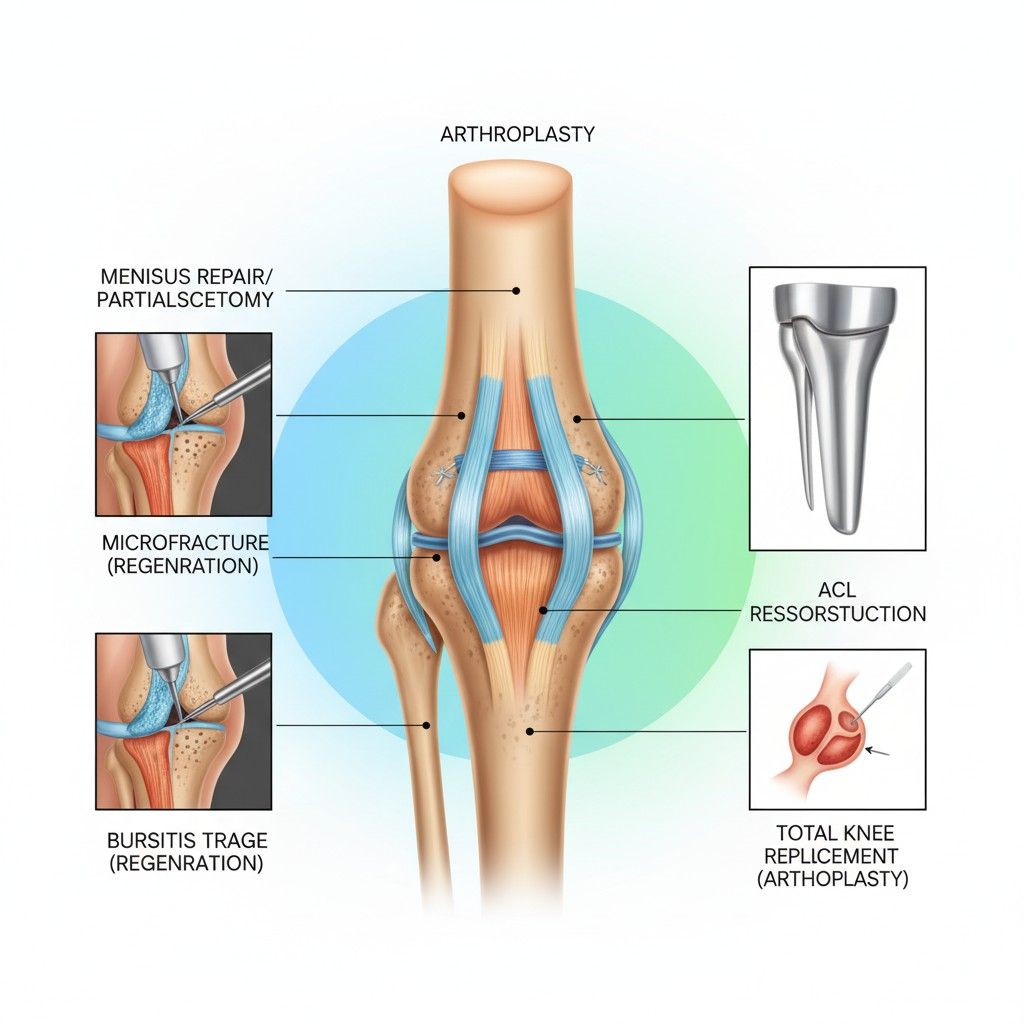
Non-Surgical Treatments
Non-surgical treatments are often sufficient for less severe cases of knee pain. Here’s how they work:
- Physical Therapy: Physical therapists create personalized plans to strengthen the knee joint and improve range of motion.
- Medications: Over-the-counter pain relievers like ibuprofen can reduce swelling and pain, making it easier to perform daily activities.
- Lifestyle Modifications: Weight management and avoiding high-impact activities can reduce pressure on the knee joint and slow down the progression of knee pain.
Surgical Treatments
In cases where non-surgical treatments fail, surgery may be required:
- Knee Replacement Surgery: For severe arthritis or cartilage damage, knee replacement may be the best option to restore function.
- Arthroscopy: A minimally invasive procedure to remove damaged tissue or repair cartilage and ligament tears.
- Meniscus Repair: If the meniscus is torn, surgery may be required to either repair or remove the damaged tissue.
Each treatment plan is customized based on the diagnosis and severity of the knee pain.
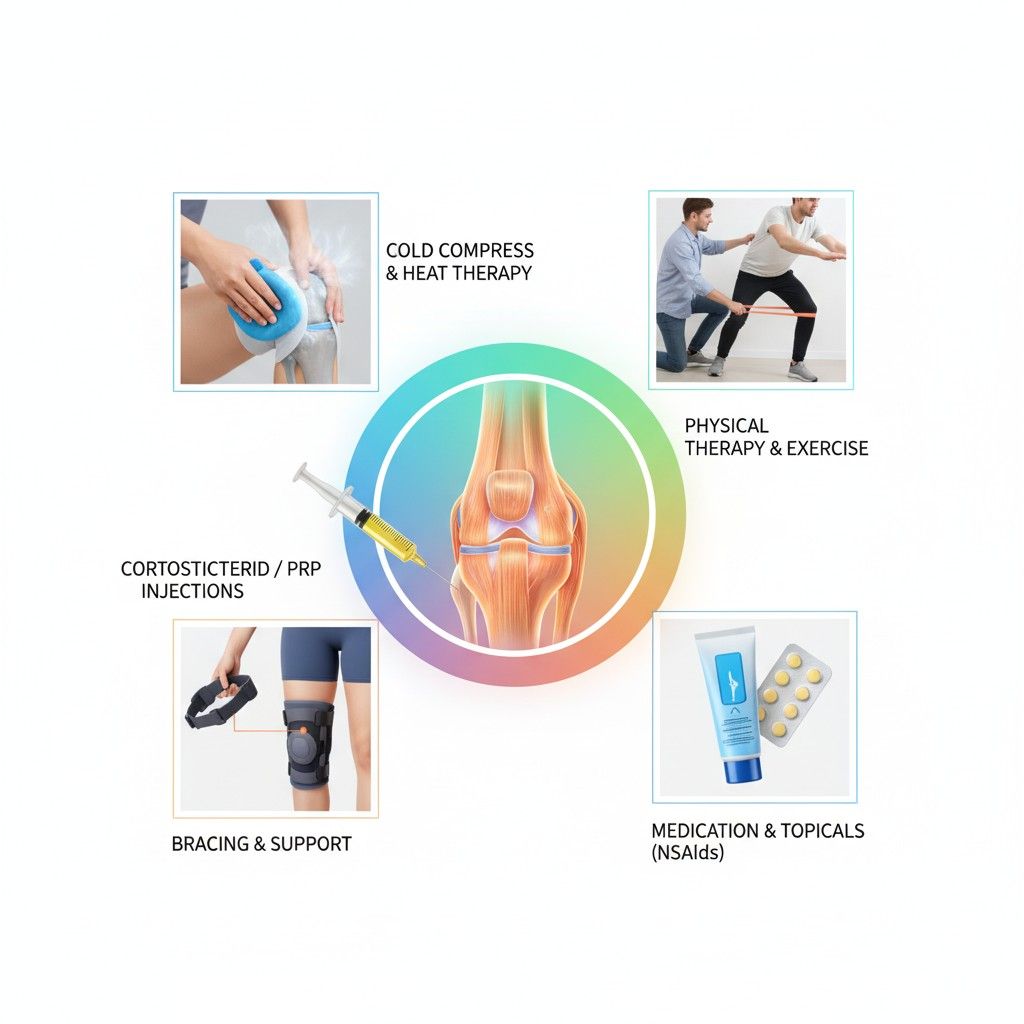
Comparison of Knee Pain Treatments
Treatment Type | Non-Surgical Options | Surgical Options |
Pain Relief | Physical therapy, pain meds | Knee replacement, arthroscopy |
Recovery Time | Short, with regular exercises | Longer, 6-12 weeks |
Effectiveness | Works for mild to moderate pain | Best for severe knee damage |
Cost | Lower cost | Higher cost due to surgery |
How to Prevent Knee Pain
Preventing knee pain is possible by adopting a few lifestyle changes:
- Exercise Regularly: Low-impact activities like swimming or cycling can strengthen the muscles around the knee joint.
- Maintain a Healthy Weight: Reducing body weight can help decrease the stress placed on your knees.
- Wear Proper Footwear: Good shoes can help improve alignment and prevent strain on the knees.
Knee pain is a common yet treatable condition. From simple lifestyle changes to advanced surgical interventions, knee pain and treatments vary depending on the cause and severity. Whether you’re dealing with knee arthritis, ligament damage, or recovering from an injury, seeking early treatment can help prevent long-term complications.
At Vedanta Hospitals Kadapa, our orthopedic specialists are dedicated to providing the best care and treatment options for knee pain relief, ensuring a fast recovery and improved quality of life.
Our Relevant Blogs
FAQ'S
1. What causes knee pain in the joint?
Knee pain can be caused by arthritis, ligament injuries, or overuse.
2. How can I treat knee pain at home?
Ice, rest, and physical therapy exercises can help manage knee pain at home.
3. What is the best treatment for knee pain?
The best treatment depends on the cause, ranging from medications to knee replacement surgery.
4. How long does it take to recover from knee surgery?
Recovery time varies, but most people need 6 to 12 weeks to fully recover.
5. Why do I feel knee pain when I walk?
Knee pain while walking can be due to arthritis, injuries, or poor posture.
6. Can knee pain be cured without surgery?
Yes, many knee problems can be managed effectively with physical therapy and medications.
7. How do you treat chronic knee pain?
Chronic knee pain can be treated with physical therapy, medications, and injections.
8. What would cause constant knee pain?
Conditions like osteoarthritis or ligament tears can cause constant knee pain.
9. Can knee pain treatment help with swelling?
Yes, treatments like physical therapy and injections can help reduce knee swelling.
10. How do I know if I need knee replacement surgery?
If knee pain is severe and other treatments are ineffective, knee replacement may be necessary.


